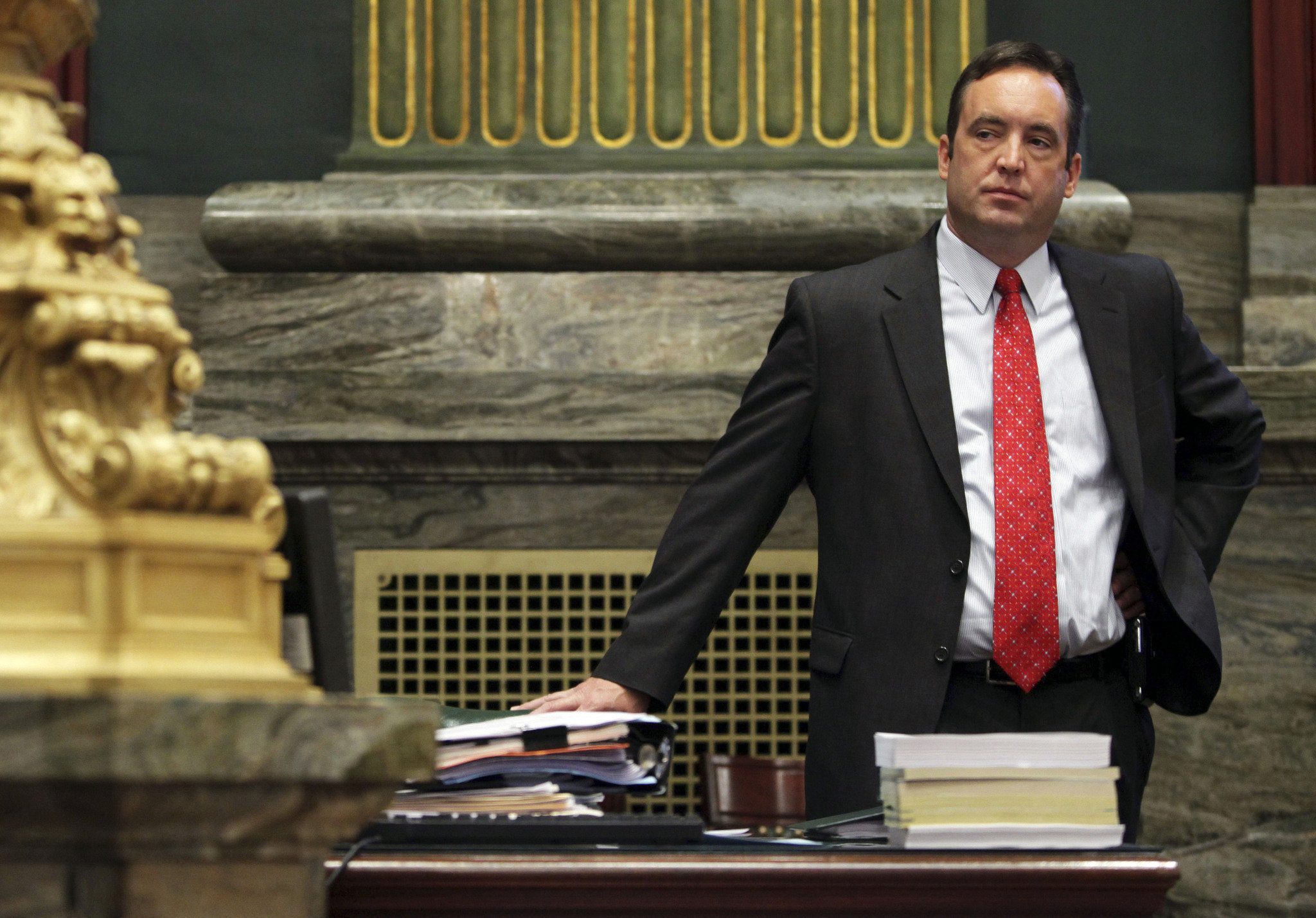Pennsylvania Expanded Gambling Discussion Continues, Is there an End in Sight?
Posted on: April 26, 2017, 05:00h.
Last updated on: April 26, 2017, 03:56h.
Pennsylvania expanded gambling measures have been circulating around the halls of the state capital in Harrisburg for over a year, as the Republican-controlled legislature searches for ways to grow revenue without increasing taxes on individuals.
It’s a money-grab concept that has the Republican Party divided in the Keystone State.

Democratic Governor Tom Wolf wants to spend more money on public education, and is also facing an opioid epidemic. The growing expenditures are leading to a ballooning budget deficit, and gaming is seen by some lawmakers as one potential solution.
Everything from online gaming and lottery ticket sales, to putting slot machines in airport terminals and bars, is on the table. The latest measures would legalize sports betting and regulate daily fantasy sports (DFS).
Authored by State Rep. George Dunbar (R-District 56), House Bill 865 is the DFS component. It received unanimous approval from the Gaming Oversight Committee on Tuesday.
The legislation now moves to the House floor. Dunbar introduced a similar bill last year, and while it easily passed the House, the DFS statute died in the Senate.
“What we’re trying to do is take an unregulated industry and regulate it and tax it,” Dunbar toldLancaster Online.
Banking on Sports Betting
Dunbar’s daily fantasy bill would require operators that generate $250,000 or more in annual revenue, aka DraftKings and FanDuel, to pay a $50,000 licensing fee for a five-year permit. The online platforms would then be on the hook to pay 7.5 percent of their adjusted net revenue to the state.
Dunbar admits the bill won’t provide much financial benefit to the state. He estimates the DFS bill would generate about $2 million to $5 million annually in tax revenue.
It’s the sports betting bill that Dunbar and the House Gaming Committee want passed in order to be prepared should Congress repeal the Professional and Amateur Sports Protection Act of 1992 (PASPA). The federal law presently keeps sports betting in prohibition, with Nevada immune from the legislation’s oversight.
State Rep. Robert Matzie’s (D-District 16) HB 519 would allow Pennsylvania’s 12 land-based casinos to offer sports betting should there be a change in the federal law. The casinos would pay the state a one-time $5 million fee should they wish to offer sports gambling, and pay 16 percent of their daily gross wagering revenue to Harrisburg.
“We must be ready to act and I believe our commonwealth is in a unique position to oversee sports betting in all of its forms,” Matzie explained recently.
Gaming Expansion a Daily Fantasy
Both Dunbar and Matzie’s bills are now headed for a vote on the House floor, but it’s unclear when that might take place. The chamber is also considering additional Pennsylvania expanded gambling measures, including the online lottery ticket sales push.
Pennsylvania Lottery Spokesperson Gary Miller believes that bill should take precedent. Miller says a growing percentage of lottery players are no longer mobile, and these homebound residents should have access to the games they’ve played for years via the internet.
The next two months will be imperative in deciding the future of Pennsylvania gaming. The House is once again expected to approve some sort of expansion, but support in the Senate remains mixed.
“We shouldn’t drive gaming, liquor, and tobacco sales, which are very addictive products, based on budgetary needs,” Senate Majority Leader Jake Corman (R-District 34) opined.
No comments yet